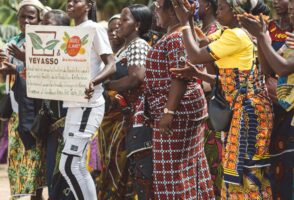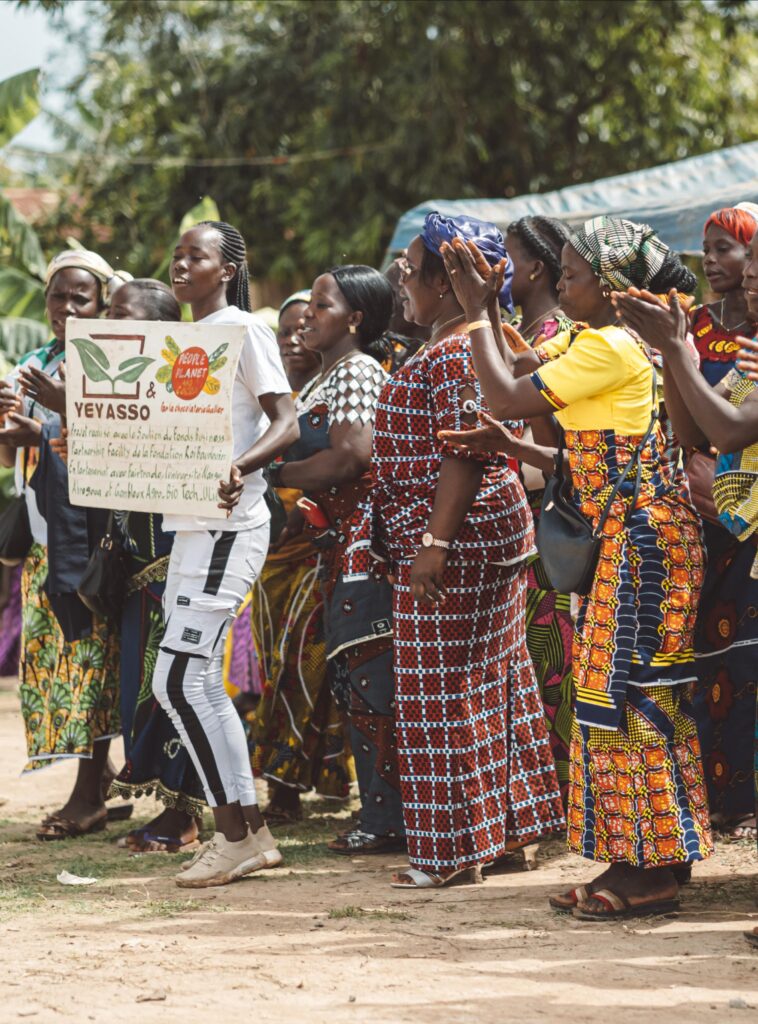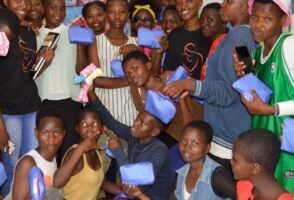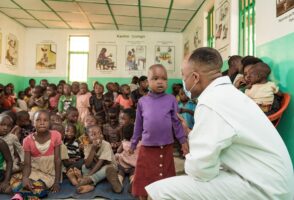
2024
“Yeyasso: the cooperative where all hopes are allowed”
The Yeyasso cocoa and coffee cooperative in the Ivory Coast makes every effort to stay one step ahead of major market trends
Read articleLocated in the Western Mountains of the Ivory Coast, the Yeyasso cocoa and coffee cooperative makes every effort to stay one step ahead of major market trends. Organic production, agroforestry development, eradication of child labour and, soon, the monitoring of forest carbon sequestration are just some of its projects. All of these objectives are being made possible thanks to the dual intervention of the Business Partnership Facility, managed by the King Baudouin Foundation.
In the Mahouka dialect, which is used in the north-west of the Ivory Coast, Yeyasso means ‘the village of hope’. When they came together in 2006, the founders of the cocoa cooperative could not have known how well-founded their hopes were nor, above all, how quickly their hopes would be realised.
Two statistics help us to see how. Initially, the cooperative had barely 350 members, of whom only around a dozen were women. And, according to the cooperative’s current director, Yeo Yessongbananan, there was a somewhat anarchic aspect to the production and sales of cocoa, which persisted for quite a while. Today, things have changed quite a lot. There are now over 7,200 members (15% of whom are women), responsible for the production and marketing of cocoa and coffee, over 12,000 hectares of land, taking advantage of the excellent climatic conditions of this semi-mountainous forest region. Current annual production stands at 7,500 tonnes, of which 5,000 is in cocoa and 2,500 in coffee.
Success did not fall from the sky, however. In 2016, the cooperative answered a call for applications from Enabel, the Belgian Development Agency, to benefit from a programme of business coaching spread over two years. “Everything began with that”, Yeo remembers. “The Galler company in Belgium was looking for certified Fairtrade suppliers who guaranteed decent working conditions and higher professional incomes for cocoa producers. Thanks to the coaching we were given, we became much more professional and in 2020, we were awarded the Fairtrade label.”
“Yeyasso differentiates itself through its added value. We aim to become organic, equitable, carbon neutral, with no child labour and with zero deforestation.”
Yeo Yessongbananan
Director of the Yeyasso Cooperative
Initiated by the Belgian Development Agency and managed by the King Baudouin Foundation, the Business Partnership Facility (BPF) programme played a decisive role. With technical support from the University of Liege, an agroforestry programme enabled four tree nurseries to be established and, from there, 70,000 tropical trees to be produced. “Our producers were able to better understand the complementarity between, on the one hand, their cocoa and coffee producers and, on the other hand, the forest tree species that provide their plants with essential cover”, Yeo explained. “What we take from Nature, we must return to her.”
The 200,000 euros in funds delivered by the BPF also provided finance for the fallow cultivation of rice and cassava provided by women’s associations, women traditionally being little involved in the production of coffee and cocoa. This also ensured a certain continuity in families’ income during slack periods of coffee and cocoa. And finally, after completing a programme to strengthen their business skills with Fairtrade Africa’s Women’s School of Leadership, 6 women and 2 men were named ambassadors for the cooperative. In 2020, two of these women were elected to the Yeyasso Board of Governors and its Supervisory Council. “Our astonishing progress in the three fields of agroforestry, diversification and inclusion have made us become service providers, notably as suppliers of forest seedlings to international traders”, Yeo was pleased to announce on a recent visit to Brussels.
In 2022, Yeyasso successfully responded to, and for the same amount of funding, a new call from the Business Partnership Facility. The objective this time was to react to major trends in the cocoa market, both current and future. Yeo explained: “Buyers are increasingly turning away from conventional cocoa. As European legislation on deforestation and compensation grows, programmes of certification and sustainability will become the norm. It is essential that Yeyasso differentiates itself and creates added value. We must become organic, equitable, carbon neutral, with no child labour and with zero deforestation.”
In practical terms, already geolocated by the cooperative’s internal trainers, all of the trees planted by the Yeyasso cooperative between 2020 and 2022 will be subject to individual scientific monitoring designed to measure their carbon capture. The objective for the cooperative is to secure ‘carbon vouchers’ that can be used to strengthen producers’ incomes. Moreover, as of 2026, the production of organic Fairtrade cocoa should double, rising from 120 to 240 tonnes per year. And finally, a third objective is to put an end to all types of child labour in cocoa production through a programme of child support, the Child Labour Monitoring Remediation System (CLMRS). “We have just acquired the 20 IT licences required to completely digitalise these three objectives, which are also creating new jobs”, explained Yeo. “Thanks to BPF, Yeyasso will become master of all of its data and our autonomy will be significantly reinforced.”
Financed by the Belgian Development Agency (DGD) and managed by the King Baudouin Foundation, the Business Partnership Facility support programme supports important viable and impactful entrepreneurial initiatives in 26 African countries. These must support at least one of the 17 Sustainable Development Goals defined by the United Nations to eradicate extreme poverty and make our world more sustainable by 2030. In five years (2019-2023), almost 12 million euros have been allocated to more than 60 initiatives.

2024
The Yeyasso cocoa and coffee cooperative in the Ivory Coast makes every effort to stay one step ahead of major market trends
Read article
2023
A grant from BPF has dramatically boosted a young entrepreneur’s aim of radically improving the lives of girls and women in Rwanda by producing eco-friendly, reusable, and hygienic sanitary pads.
Read article
2023
One in two children in South Kivu is chronically malnourished. Kesho Congo is developing software to monitor patients more closely and using data research to find solutions to this complex problem.
Read articleTo stay informed about news from our partners and new calls for proposals
Subscribe to the newsletter